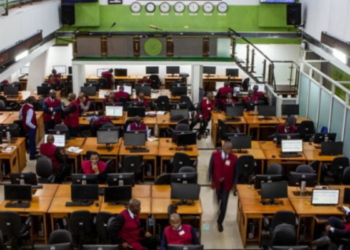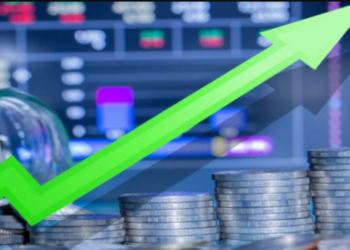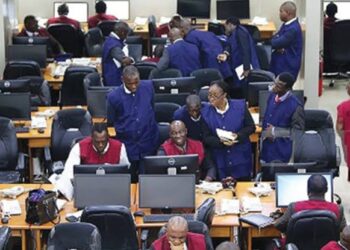Following the expiration of the five-year Value-Added Tax (VAT) exemption on Stock Exchange transactions, it has been revealed that investors may lose as much as N2.5 billion yearly as additional costs on transactions.
Reports said stakeholders in the Nigerian capital market have been expressing concerns on the matter just as the non-reversal of VAT payment takes its toll on stock market transactions.
The reports also showed that market charges have increased total costs of transactions-on both sides (buying and selling) from 3.7% as at July 24 to 3.9% by July 25.
The background: The VAT exemption on stock exchange transactions expired on July 24, thus investors and dealing members of the capital market are now required to pay VAT for transactions carried out on the NSE.
- A former Minister of Finance, Dr. Ngozi Okonjo-Iweala, had in 2014 exempted VAT deductions from commissions earned on the traded value of shares, commissions payable to the SEC and commissions payable to the Central Securities Clearing System (CSCS).
- Following the expiration, the deduction of VAT took effect from on July 25.
- Hence, the commissions that attracted VAT include the ones earned by Dealing Members on traded values of shares and the ones payable to the NSE and the CSCS.
[READ: NSE to enforce VAT on Stock Market transactions]
Transactions Cost up: Further details had revealed that the re-imposition of 5% VAT, commission payable to stockbrokers increased from 1.35% per transaction to 1.41%. Commission payable to the NSE also increased from 0.3% to 0.31% while the commission payable to CSCS rose from 0.36% to 0.378%. Besides, investors will pay stamp duty of 0.075% on each transaction.
- A further breakdown in the report showed that the total costs per transaction on the buy-side increased from 1.72% as at July 24 to 1.79% by July 25, while total costs on the sell-side rose from 2.02%t to 2.12%.
- Specifically, investors paid an average of N2.49 billion yearly or N207 million monthly, based on transactions in the past two years.
- This means an estimated additional cost to be paid by investors may be in the region of N2.5 billion
Stakeholders concerns: Meanwhile, stakeholders in the capital market have decried the inconsistency in government’s fiscal policies and its understanding of the fragile capital market.
According to the Chief Executive Officer of Sofunix Investment and Communications, Mr. Sola Oni, the re-imposition of the VAT was a bad omen for the stock market and it may further stifle investors’ confidence in the capital market.
“It will obviously increase transaction costs and make our market more uncompetitive. High transaction cost is at variance with global best practices. The policy is an overkill at a period when investors’ confidence in the market is still fragile,” Oni added.
[READ FURTHER: Here’s how to invest in US stocks from Nigeria]





















